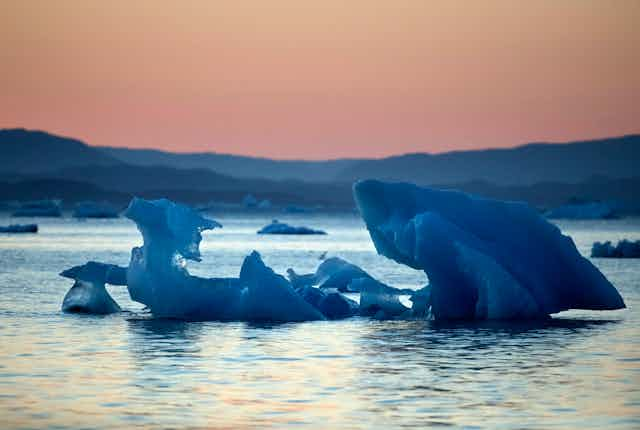When asked about major threats to their country, Europeans are more likely than Americans to cite global climate change, according to a Pew Research Center survey. Just 56 percent of Americans see climate change as a major threat, versus an average of 64 percent of Europeans surveyed.
Why the difference? Like climate data itself, data regarding public concern for climate change are “noisy.” Public response can vary depending on what’s going on in the news that week. Surveys of these types of surveys find no single explanation for how the public perceives the threat of climate change.
Of course, many explanations exist. As a climatologist who has taught university classes and given public lectures on global climate change for 30 years, I find it clear that public concern about climate change has evolved dramatically over the past three decades. In the U.S., now more than ever, it seems tied to ideology.
Knowing the facts
Does scientific literacy influence responses? Some psychologists think so. Indeed, some surveys show that Europeans have significantly greater scientific knowledge about the causes of climate change than Americans.
It’s possible that such knowledge translates into a sense of responsibility for mitigating climate change. But having more general scientific knowledge is not as relevant as knowing specifically about climate change.
A person’s outlook on the world can also complicate matters. Another recent Pew survey found that Americans are more likely to believe they control their own destiny and that they “tend to prioritize individual liberty, while Europeans tend to value the role of the state to ensure no one in society is in need.”
Research on the respective roles of scientific literacy and worldview reaches different conclusions. Psychologist Sophie Guy and colleagues argue that knowing the causes of climate change makes people more willing to accept the reality of climate change or to moderate their ideological opposition to it.

By contrast, Yale scholar Dan Kahan and colleagues find that people with the highest level of scientific literacy often use that literacy to retain and justify prior beliefs – what they call the “polarizing impact of science literacy.” In other words: “I’m smart, I’ve read the evidence and it confirms my prior understanding.” Climate change reflects a threat not only to one’s local environment, but also to one’s worldview.
Political affiliation
When you look more closely at recent survey responses in the U.S., the most striking and consistent finding is that political affiliation influences perceptions of climate change.
In the U.S., Democrats report, at consistently higher rates than Republicans, that climate change exists. Merely substituting the term “global warming” – now a politically charged catchword – for “climate change” makes the differences larger.
The divide between parties within the U.S. far exceeds the divide found between the U.S. as a whole and Europe. Political divisions also exist in Europe, and public opinion polls in the U.K. and Norway show that party similarly influences the perceived threat of climate change. However, there’s some evidence that the U.S. Republican Party is anomalous among conservative parties internationally. In other words, U.S. Republicans are more starkly anti-climate change than other conservative parties internationally.
It’s possible that the strong two-party system in the U.S. leads to a more binary mode of thinking on this issue that does not accurately represent that of the scientific community. Sociologist Aaron McCright and his colleagues argue that the high number of Americans identifying with the political right explains why the U.S., unlike other wealthy countries, is less concerned about climate change.
Closing the gap
Some suggest that the political divide has fueled an industry of climate change deniers and skeptics, distorting public perception about climate change science. Science historians Naomi Oreskes and Erik Conway argue in their book “Merchants of Doubt” that denial is about more than the science. It’s about political and economic systems that individuals hold dear. It also can result from differences in professional culture or personal values.
In the U.S., many of the most vocal skeptics and deniers of climate change emerge from conservative think tanks that revere the industrial capitalist system.
In Europe, differences between countries can also be explained by the voices of conservative think tanks and the media, but these voices are more influential in the U.S. than anywhere else because of the two-party system. Partisan clashes about climate change emerge from influential, well-funded sources that wield great influence on Congress, the media and ultimately the public. By contrast, most European countries have more than two parties, and arguably the political influence of corporations is lower.
Given the political divide on climate change in the U.S., addressing this 21st-century threat will require creative thinking that recognizes different worldviews and “beliefs” in climate change. The U.S. House Climate Solutions Caucus is a step in the right direction.

